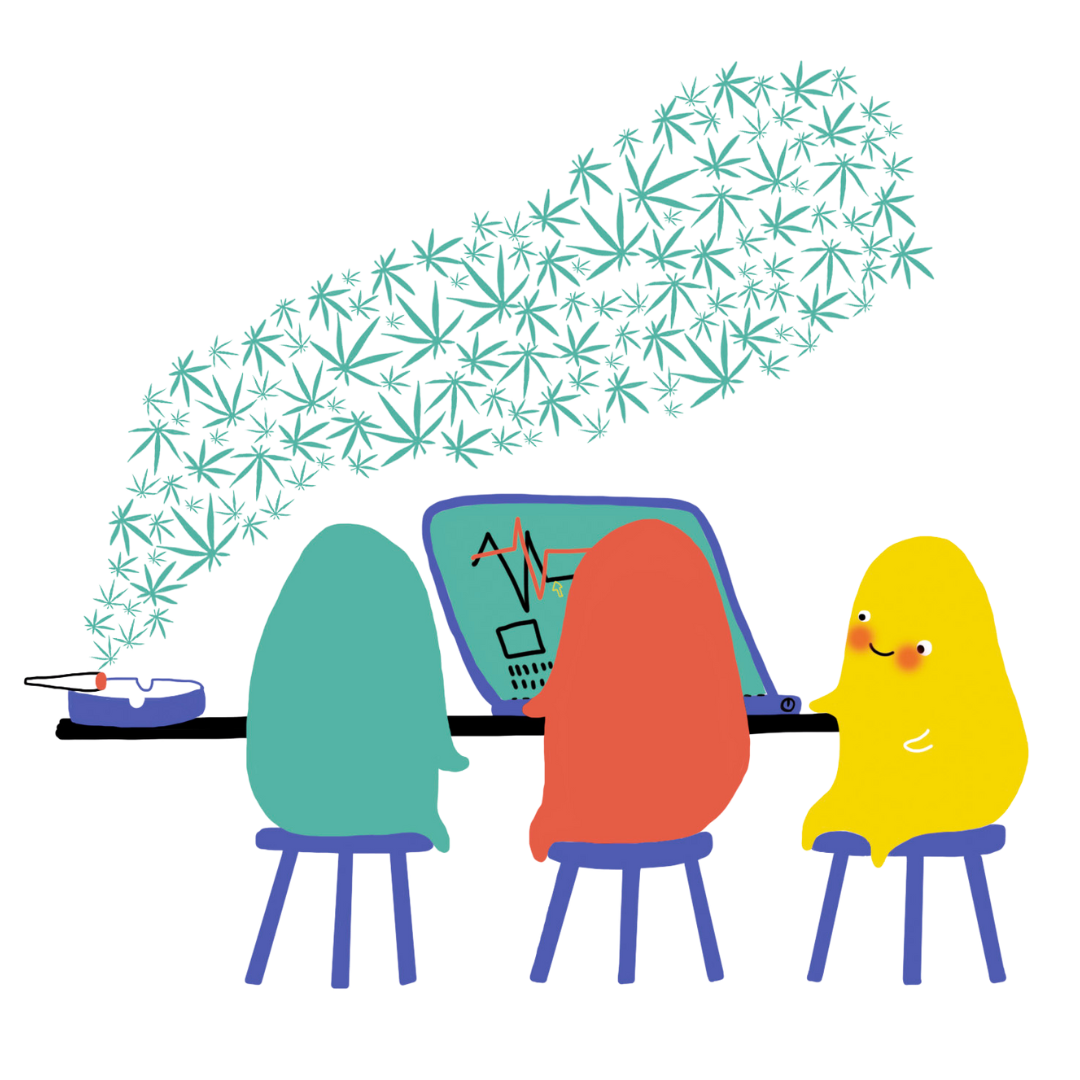Member involvement and connection reduces risks (1/2)

Cannabis social clubs (CSCs) are community spaces where responsible consumption can be promoted with a strong focus on the social and emotional well-being of members. These entities not only offer access to cannabis, but are also places of mutual support and education where experiences are shared and risks associated with consumption are reduced. Members, through active participation, contribute to the culture of each club. Despite the lack of extensive scientific studies, existing research suggests that CSCs can be an effective tool for improving the mental and physical health of users.
A central aspect of cannabis social clubs (CSCs) - as the name clearly indicates - is their community approach. CSCs are not mere cannabis supply points, but spaces where peer-to-peer relationships and community building play an essential role.
Each association is a reflection of the people who constitute them. The motivation and objectives of the group that drives and is responsible for the day-to-day running of the organization permeate the atmosphere, dynamics, speeches and conversations that take place in each of the more than 450 CSCs throughout Catalonia.
It is important to point out that the members of the cannabis associations are the true protagonists of the story. They give life to the physical space of the CSC, the social headquarters and, to a certain extent, validate and endorse the service and treatment they receive from the people responsible for and working at the organization. Behind the doors of each CSC there is a multitude of experiences, learning, successes and failures; in fact, as happens in any other organization. This mosaic of stories is made up of a social and cultural richness that is not negligible. Cannabis culture is both local and global at the same time, like a spring that gushes forth: there is constant dialogue and feedback.
Culture, understood as the set of values, practices and human relationships that make up a community, plays an essential role in the mental and emotional health of individuals. Belonging to a community fosters social connection, reduces isolation and generates spaces for mutual support. The theory of peer education is a pedagogical approach that encourages the exchange of knowledge and experiences among people with similar roles or situations, thus creating two-way learning. In the cannabis social club (CSC) model, this theory translates into participation in assemblies and the formal and informal transmission of information about responsible cannabis use and risk reduction among members themselves. This dynamic reinforces individual and collective strength and favours a well-informed community.
In the context of CSCs, the sociocultural dimension is manifest in the daily interaction between partners, in informal conversations and in the exchange of experiences around cannabis. This not only strengthens the bonds between members, but also promotes a more responsible use, based on collective learning. The constant dialogue among peers allows people to share information about the risks associated with use, ways to reduce them and ways to integrate use into their lives with fewer difficulties.
Today there are very few scientific studies on the phenomenon of CSCs. However, one of the most prominent researchers in the field of drug policy, Vendula Belackova, published in 2016 an interesting qualitative study called “The moment you enter the door, you are minimizing the risks” on how CSCs decrease the risks associated with consumption, create safe environments and strengthen social bonds between members. A total of 94 members participated in the study, in 14 focus groups organized in 4 regions of Spain: the Basque Country, Catalonia, the Balearic Islands and Galicia. Below is a table summarizing the main elements identified in the study and the strategies used by the participating clubs to mitigate them:
Have you ever stopped to think of your CSC as much more than a place where you can access cannabis? Imagine it as a kind of creative oasis, a meeting space where ideas can grow as much as plants. Participating is much more than just interacting with the dispensary. If you're interested in finding out more, keep reading the next RdrCànnabis blog post (2/2)!

